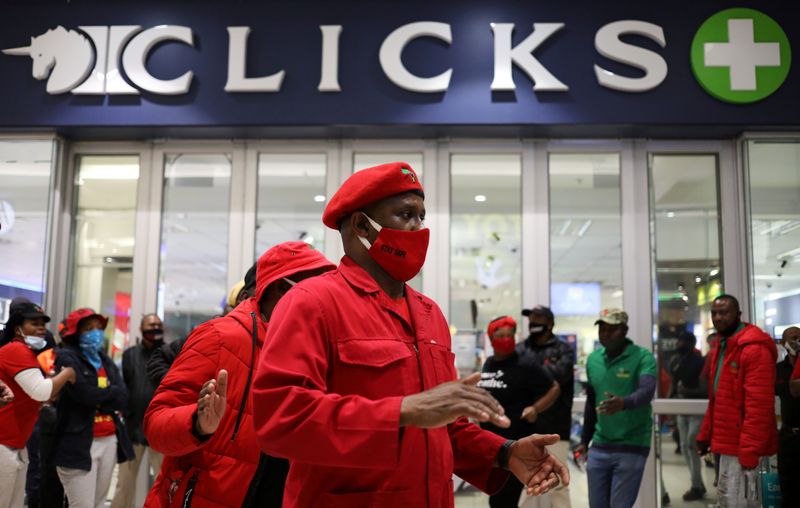JOHANNESBURG (Reuters) – Unilever <UNA.AS> <ULVR.L> has agreed to pull all its TRESemmé haircare products from South African retail stores for 10 days as a show of remorse for a “racist” ad, the consumer group said in a joint statement with an opposition political party.
Some retailers had already begun removing the products over the advert by TRESemmé, posted on drugstore Clicks Group’s <CLSJ.J> website on Friday. It described images of African black hair as “frizzy and dull,” and “dry and damaged” while a white woman’s hair was referred to as “normal”.
It caused an outcry on social media and sparked protests led by the opposition Economic Freedom Fighters (EFF) in a country where unfair treatment of black hair evokes painful memories of prejudice during apartheid.
The then-government used a “pencil test” to determine someone’s racial identity: a pencil was inserted into a person’s hair and if it did not fall, that person was considered not white.
Even in post-apartheid South Africa, black hair is still policed in schools, where black girls with natural afros are sometimes suspended for not “wearing their hair right” or asked to straighten their hair.
The EFF met with Unilever earlier on Thursday, where it was told that the director involved in the campaign has since left the company and the country, the ultra-left-wing party said in the joint statement. Unilever confirmed the statement but did not offer any further comment.
In addition to pulling its TRESemmé products, Unilever will take necessary disciplinary action against those involved in the campaign, the statement said.
Clicks has removed the advert and apologised, as did TRESemmé South Africa.
Earlier on Thursday retailers Makro, owned by Massmart <MSMJ.J> and Dis-Chem Pharmacies <DCPJ.J> joined Clicks, Pick n Pay <PIKJ.J>, Shoprite’s <SHPJ.J> Checkers and Woolworths Holdings <WHLJ.J> in removing TRESemmé products from their shelves.
Clicks said on Thursday it will now use the shelf space to support more local beauty brands and increase spending on small, micro and medium enterprises. Pick n Pay said it would engage with the supplier and the other companies were not immediately available to comment on whether they would restore the products after the 10-day period.
The amount of TRESemmé revenue at risk is quite small: Euromonitor reckons the brand has a 1.7% market share in the Middle East and Africa, implying around $100 million of 2019 annual sales out of Unilever’s $60 billion.
But a bigger concern for Unilever is that the scandal might affect its broader haircare business, which represents 12% of the total, or that its reputation in the African market will suffer as retailers do not want to be associated with it.
Less than three months ago, Unilever agreed to drop the word “fair” from its Fair & Lovely skin lightening products in India amid a backlash, while in 2017 it faced a social media outcry over an advert for Dove body wash which showed a black woman removing her top to reveal a white woman.
More recently in August its Knorr brand agreed to rename its popular “Zigeuner” – or gypsy – sauce as Hungarian-style paprika sauce after complaints that the name is offensive.
(Additional reporting by Martinne Geller in London; editing by Emelia Sithole-Matarise and Philippa Fletcher)























